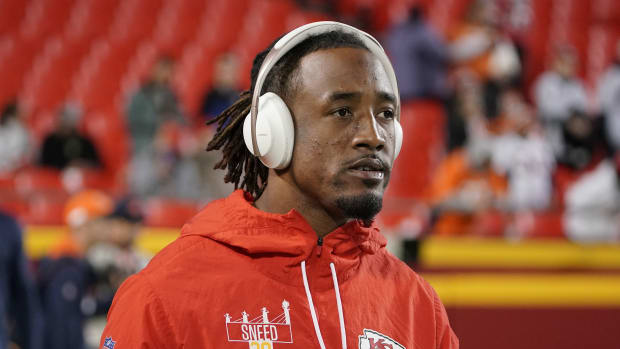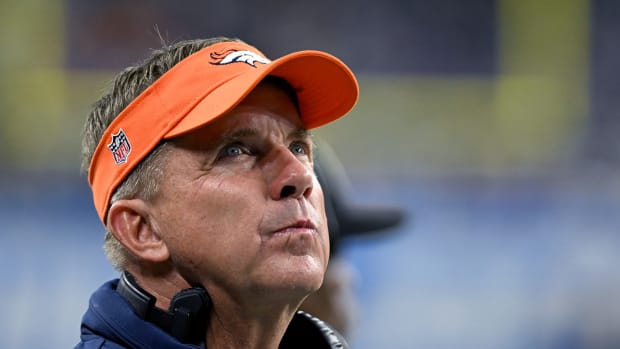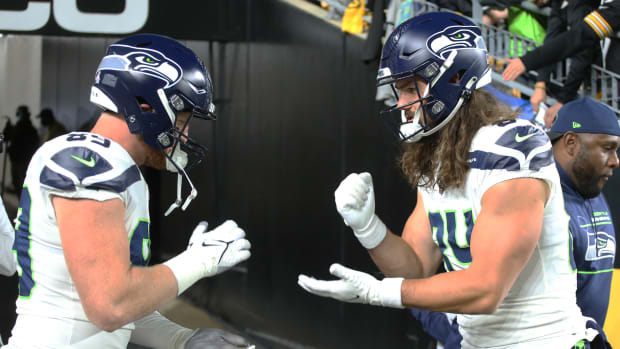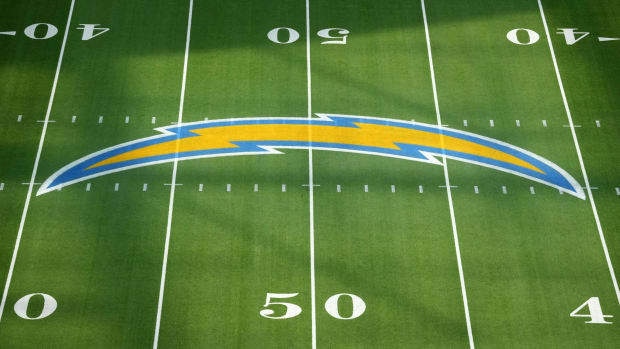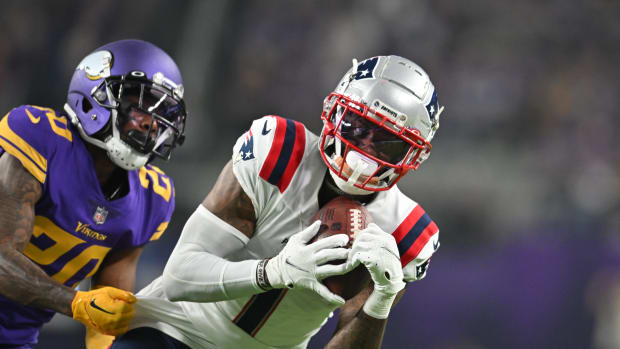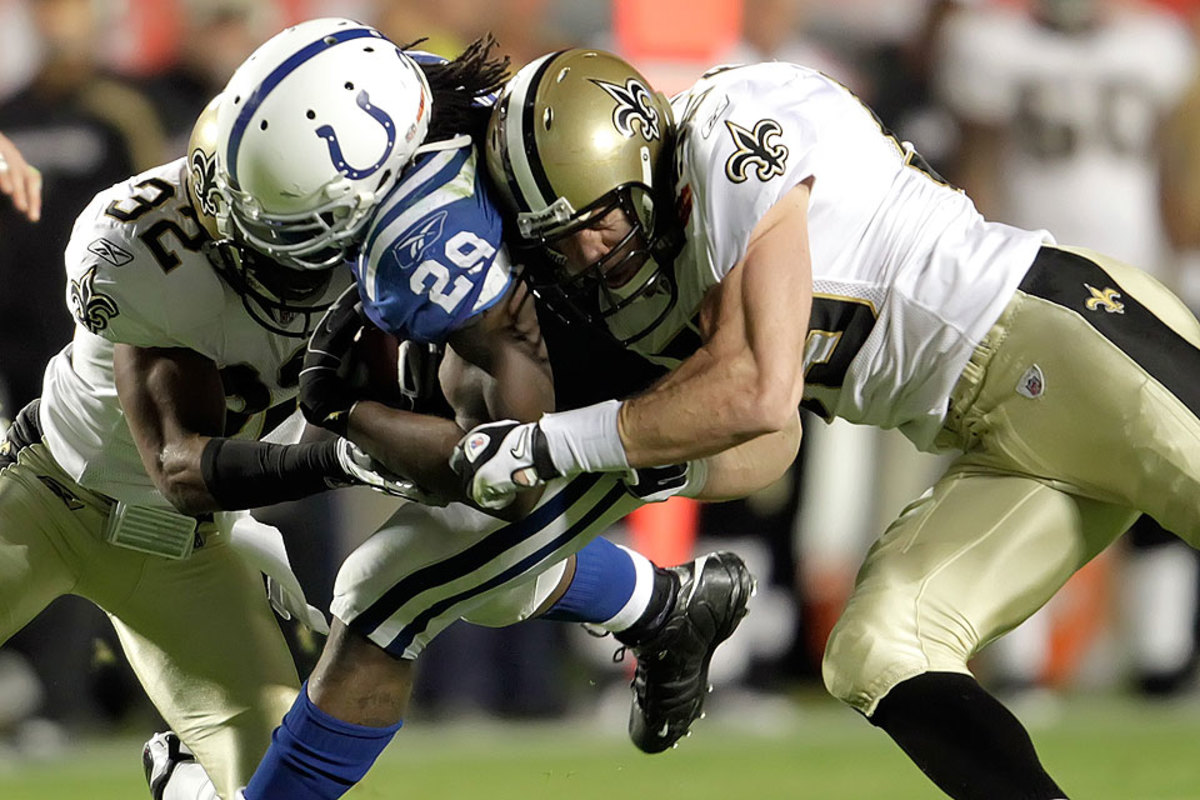
‘I Chickened Out’
There is no moral of the Chris Borland story yet. We don't know, nor should we draw any hasty conclusions, about the meaning of a rising-star 24-year-old player's decision to quit football after his first year in the NFL. It is certainly not meaningless when a promising linebacker leaves the game due to fear over his long-term health. But will others follow? Will the league redouble its health-and-safety efforts? And, in the end, isn't there simply a danger to this game that those who play it and those who watch it are going to have to accept?
The Borland Ripple Effect
As a parent, Greg Bedard often second-guesses his decision to not let his son even consider playing football until high school. After watching 49ers linebacker Chris Borland walk away from the game, Bedard writes that his son may never have a say in the matter. FULL STORY
In my three decades covering football, I've met a lot of smart players. I went looking for one who would have much in common with Borland to see what he thought of the decision. So I spoke with three smart linebackers who I knew wouldn't sugarcoat their feelings about what Borland had done. Two chose not to talk about it—one because his career is teetering on the edge of being over, and another because he said his feelings about it were too raw, and because he didn't know enough about why Borland had quit.
But recently retired Scott Fujita—a linebacker like Borland, a mid-round draft pick like Borland, a captain-of-the-defense-type like Borland, and extremely smart like Borland—did speak, and eloquently.
Fujita, now living in California, said he greatly admired what Borland did. He said he almost quit at age 30, after his eighth season in the league, after he played for the Super Bowl-winning Saints in 2009, because he'd sustained a concussion in the Super Bowl win over Indianapolis and thought he should walk away.
“But I chickened out,” Fujita said. “A week or so before free agency began [in 2010], everything cleared up, I felt good, and I realized I still wanted to play.”
And there was the matter of a three-year, $14-million contract with Cleveland ($8 million guaranteed) to consider. Fujita played. Well, sort of. He finished each of his three seasons in Cleveland injured, and never had a year there befitting his talent. As Fujita said: "I limped to the finish line of my career."
His story: "I was paid well in Cleveland, and my family and I will benefit from it the rest of our lives. That's what is tough late in your career. After I got the concussion in the Super Bowl, in the weeks after, my wife would say to me, 'You just don't seem like yourself.' But you think you've got one last chance for a bite at the apple, and you feel good enough, and you figure you should take it.
"The biggest threat to football, long-term, will be a diminishing talent pool," Fujita says. "But we don't know if there will be one yet, so everyone should cool it with the hyperbole."
"That's why, with Borland, my first reaction is he was brave and smart and courageous to make a decision like this. And mature, for a 24-year-old. How many guys that age would do their homework on their own and research head trauma and be able to come up with such a major life decision with such an attractive football future ahead of them?
"I can tell you this: No matter how intelligently you think about your future, and a decision like that, it's tough to get off the hamster wheel and stop playing.''
Chris Borland. (Michael Zagaris/Getty Images)
One of the reasons I reached out to Fujita was to try to put things in perspective. I always felt, even with the toughest issues, he could look at things from all sides. Which is why I wanted to know what he thought about the long-term effect of Borland's decision—if he could see one yet.
He can't. It's too early. Not enough has happened.
“I don't see this as an indictment of football necessarily,” Fujita said. "This is just one more piece in a broader conversation about a very complicated puzzle. I've always said the biggest threat to football, long-term, will be a diminishing talent pool. But we don't know if there will be one yet, or when that will happen. So everyone should cool it with the hyperbole."
Couldn't have said it better myself.
Now onto your email for the week:
* * *
OH YEAH. DEFLATEGATE.Why the delay on releasing the findings on the Patriots' deflation fiasco? The NFL clearly is dragging its feet in hopes people will forget. Even if they clear the Pats, the delay in reporting findings is an embarrassment!
—Tom S., Murrysville, Pa.
I agree that it’s strange to have a fairly simple process—at least it seems simple to me—stretch into the end of a second month. But Wells’ investigation into the Richie Incognito/Jonathan Martin episode took 14 weeks. At this point, as long as they get it right in the end I think that’s what I’d be most focused on.
MARIOTA TO TENNESSEE? Am I the only one who thinks the Titans are trying like heck to lay low and pretend nobody notices them until draft night? Why has there been absolutely no talk of them picking Marcus Mariota (assuming Winston goes first)? Are we really believing that Zach Mettenberger is their long-term franchise quarterback? Sorry. I'm not buying it.
—Ryan S., Yorktown, Va.
2015 Draft Breakdowns
Marcus Mariota: Everything but the fireJameis Winston: Is he worth the trouble?Melvin Gordon: Can he break the RB first-round drought?Amari Cooper: Is the best wideout worth a top-10 pick?
I don't think
people are ignoring the Titans and Mariota. I’ve been vocal, and I know others have too, about the Titans unequivocally being in play for Mariota. In fact, if I had a mock draft to do today, I’d pick Mariota to Tennessee.
DEMAURICE'S MOTIVATION. Why does DeMaurice Smith want to continue as the executive director of the NFLPA? Does he not have other prospects? What benefit does he gain? My feeling is that he's been trying to make up for the fact that he got beat like a drum at the last CBA negotiations, and he's been desperately trying to redeem himself ever since. Personally, I think the players are making a big mistake [in re-electing Smith].
—Kevin C.
Smith is very handsomely paid to be the executive director of the union. I’m sure he must enjoy the job. If you make seven figures and do a job that you enjoy, why would you not want to do it? I don’t know what his motivation is for keeping his job, but having talked to him on several occasions in the aftermath of the 2011 CBA getting done, I can tell you categorically that Smith is not unhappy with the job he did in negotiating that contract.
CAP CONCERNS.What would happen if it was mathematically impossible for an NFL team to get under the salary cap? I suppose the NFL's review of contracts might be able to prevent this, but it certainly is possible to imagine a situation where an NFL team would not be able to get under the cap due to the immediate "cap hits" from releasing the players with a high cap salary. What does the NFL do then?
—Stephen M.
Teams are not allowed to enter the new league year, which started eight days ago, without being under the cap. The team would not be allowed to conduct business until it was under the cap. With teams managing the cap year-round, there’s no way a team is going to get stuck in non-compliance when the league year opens.
JIMMY'S COWBOYS.I realize that historical accuracy is not a placed at a premium in today's culture, but in reference to your statement Monday that the Cowboys won Super Bowl XXX with Barry Switzer coaching Jimmy Johnson’s players, the roster of the 1995 Dallas Cowboys had 27 players that never played a down for Jimmy Johnson. This included starting guard/center Derek Kennard, six-time Pro Bowler Ray Donaldson and Hall of Famers Deion Sanders and Larry Allen. Michael Irvin, Bill Bates, Mark Tuinei, Nate Newton, Ken Norton, and Jim Jeffcoat were not Barry Switzer's players, but they were not Johnson's players either. They were Tom Landry's players.
—Philip C.
Talk Back
Have a question or comment for Peter King? Email him at talkback@themmqb.com and it might be included in next week mailbag.
So then the two Super Bowls the Cowboys won with Johnson as coach should not be credited to Johnson then? Come on now. To say that the last Super Bowl won by the Cowboys was not largely due to Johnson’s contributions is ignoring reality.
GREEN BAY BIAS. With the exception of mentioning Tramon Williams (a Packer free agent), I saw no mention of the Packers in the column on Monday. I am surprised by that, since both Randall Cobb and Bryan Bulaga took less money to stay in Green Bay. I think that says a lot about the Packers organization and was worth at least a mention.
—Dave
There are probably 10 teams that had active and interesting first weeks of free agency that I didn’t cover on Monday in 8,500 words of the column. I’ll just tell you what I always say to points like this one: Although I cover 32 teams, I don’t cover 32 teams every week. I try my best to include what I think is the most topical events of each week. I don’t always succeed. But I appreciate you pointing out the job the Packers did.
Follow The MMQB on Facebook, Twitter and Instagram.
[widget widget_name="SI Newsletter Widget”]




































